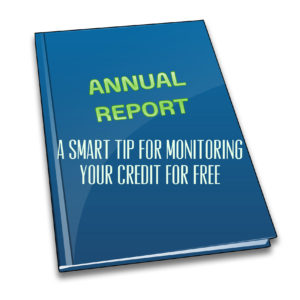By: Robert J. Nahoum
A Federal Trade Commission study of the U.S. credit reporting industry concluded that 25% of consumers had errors on one of their three major credit reports. With 322,583,006 people in America that means that more than 80 million Americans have errors on their reports.
Common errors found in credit reports include:
- Outdated information (usually older than 7 years).
- Accounts incorrectly reported as delinquent.
- Information that is not yours because of confused names, addresses, etc.
- Reported debts incurred as a result of identity theft.
- Delinquent accounts reported by multiple creditors.
- Information from an ex-spouse.
Mistakes on your credit report can lead to increased interest and insurance rates, rejected as well as rejected credit, employment and housing applications. You should regularly monitor your credit report to ensure their accuracy.
Here’s a trick that will allow you to check your credit report three times per year for free.
Under federal law, you are allowed to get a free copy of each of your three credit reports once very year from AnnualCreditReport.com.  This is the only legitimate not for profit resource for getting a free credit report. This is not those singing buffoons you’ve seen on television commercials.
Here’s the trick, instead of getting each report all at once, get one every four months. This will give you quarterly monitoring coverage and make it more likely that you will discover an error  before too much damage is done.
While each report is generated from a different company, the three are generally consistent in reporting the same information.
Federal law called the Fair Credit Reporting Act (FCRA) governs how the credit reporting agencies handle consumer credit information.  The FCRA is intended to protect the accuracy and privacy of consumer credit information.  The FCRA mandates that credit reporting agencies and the entities that report credit information to them (called “furnishersâ€) to ensure that credit information is fair, accurate and kept private. The FCRA provides consumers with the right to access and correct any inaccuracies.
If a credit reporting agency, a furnisher or a user of a credit report violates the FCRA, the consumer can sue for damages including to $1,000.00 in statutory damages, plus actual damages (for example pain and suffering) and most importantly, reasonable attorneys’ fees. Like many other consumer protection laws, the FCRA is what is called “fee shifting†– meaning that the obligation to pay the consumers attorneys’ fees shifts to the debt collector.
If you’re rights under the FCRA have been violated, contact us today to see what we can do for you.
The Law Offices of Robert J. Nahoum, P.C
(845) 232-0202
www.nahoumlaw.com
info@nahoumlaw.com

